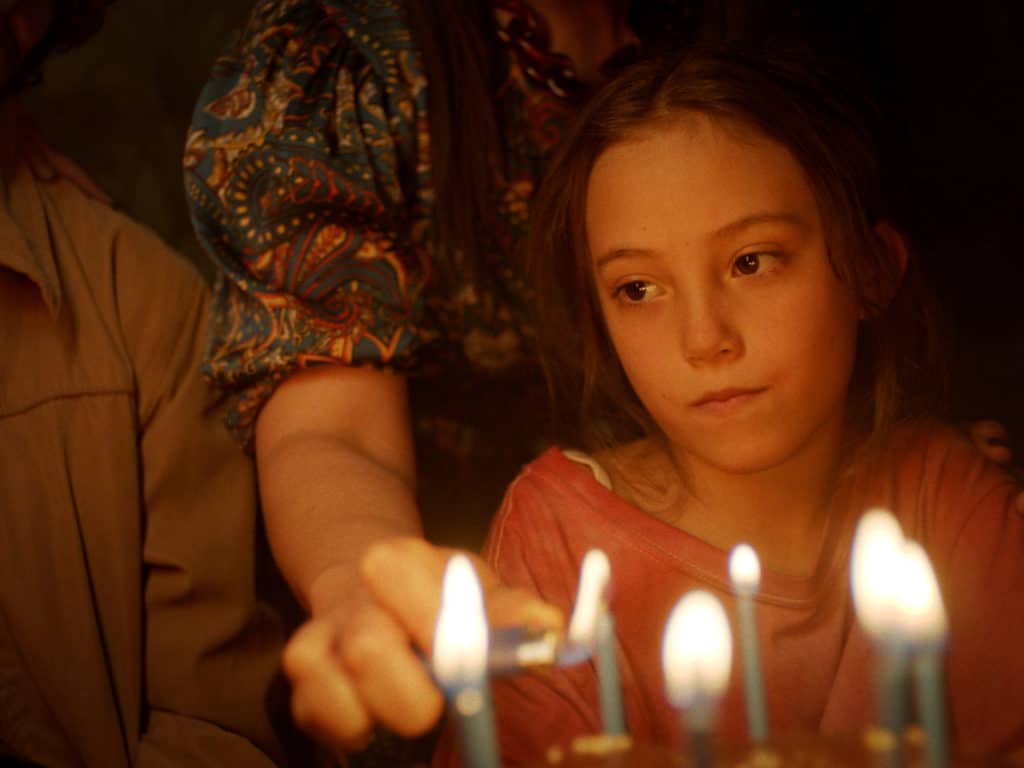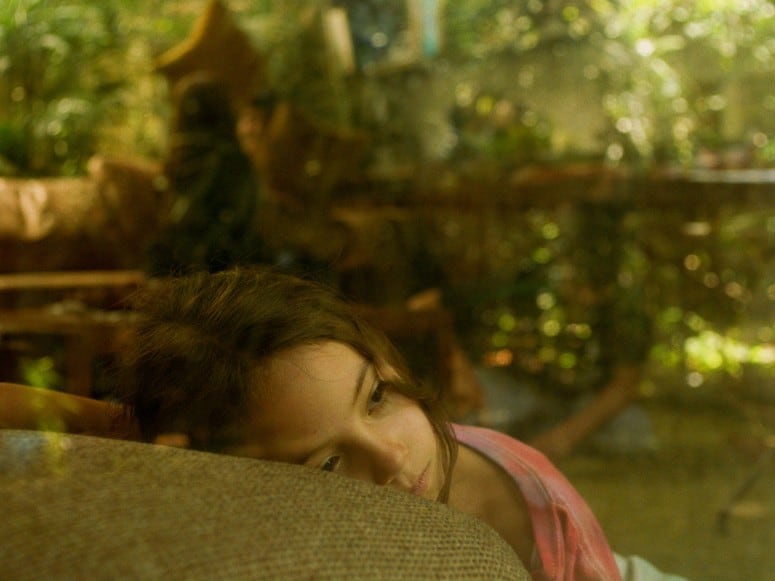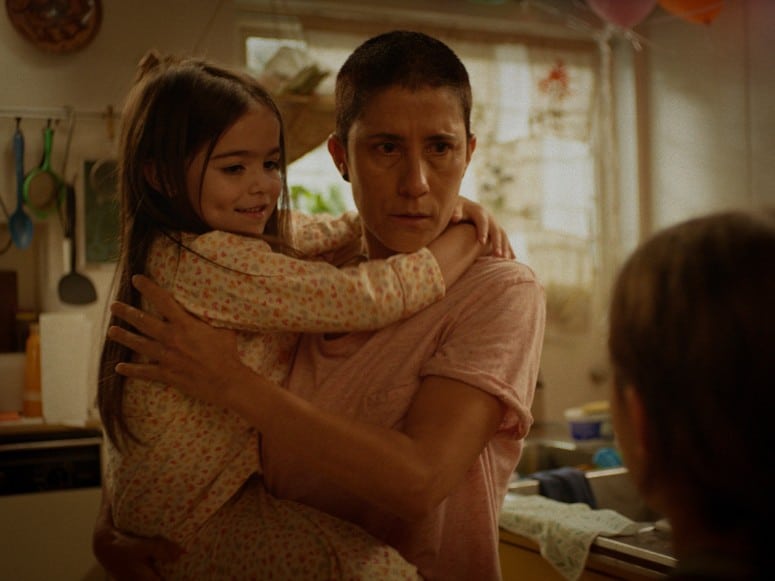Tótem is Lila Avilés’ sophomore feature, following The Chambermaid (La Camarista 2018). The young artist, Tona, is dying of cancer. His family and friends throw a birthday party for him, which will clearly be his last. The film is, in many ways, seen through his daughter Sol’s perspective. Initially, we meet her and her mother on the way to the party. During this section of the film, everything feels annoyingly loose. Once they arrive at the house, other relatives are introduced. Among them is Tona’s sister Nuria, whose responsibility for making the cake causes her to become gradually stressed and drunk. Her sister Alejandra has hired a woman to eliminate evil spirits by waving a burning stick and burping.

The house belongs to Tona’s father, a psychologist, who seems to spend most of his time perfecting his bonsai tree. He might have suffered from cancer as well since he has to speak with the aid of an electrolarynx. There is also Tona’s nurse, Cruz, expertly portrayed by Teresita Sánchez, who played one of the most interesting characters in The Chambermaid. The birthday boy himself is barely seen during the film’s first half. The grownups don’t want to tell Sol what is going on and even use coded language to conceal the awful truth. She still feels that something is not as it should be. We see her asking questions to her phone about her father’s future.
Where is the Totem?
The remainder of the film is set during the party, and everything is set for a token depiction of a sprawling kind, which will make critics rub their hands with glee. I wasn’t entirely satisfied during the film’s first half, and I had my suspicions about the other half, as well. More than once, I scribbled “Son of Sieranevada” in my imaginary notepad. The fact that I wasn’t entirely sold on The Chambermaid was also looming in the background. Then something happened with the film (or with me). The material we had experienced thus far started to play out in a non-obvious way. What could have been fodder for simple comedy was deftly avoided, and the themes were adequately intensified.

One item will serve as an example. The aforementioned electrolarynx is overused, neither in a Schanelecian way nor in a simplistic, humoristic fashion. Even though Sol steals the device at one point, the scene is still tightly controlled without any cheap laughs. Control is the operative word, for, in the last thirty minutes, Avilés and her cinematographer, Diego Tenorio, show their hands, which contain an unexpected amount of aces. The director doesn’t resort to set pieces, unlike far too many contemporary filmmakers. While the film comes together in some ways, there is still a mysticism looming under the surface. Even though the characters are well-rounded, they still seem to hide secrets. The acting is superb across the board.
It’s a highly impressive feat, carried out by Avilés in her second feature. Tótem is technically impressive in an unobtrusive way but also filled with a humanity that comes off as sincerely genuine. Aspects of the film that initially felt irritating now fit in the puzzle. Simultaneously, it’s a film that becomes increasingly enigmatic in the best way possible. Towards the very end, the film builds to a climax that is nearly Oliveiraesque in its intensity. After three days of lacklustre competition films, the fourth day started in the best possible way with Tótem. Whether this means that Avilés is a force to reckon with or her second film is, an impressive aesthetic cul-de-sac remains to be seen.
Seen at the 2023 Berlinale competition.

